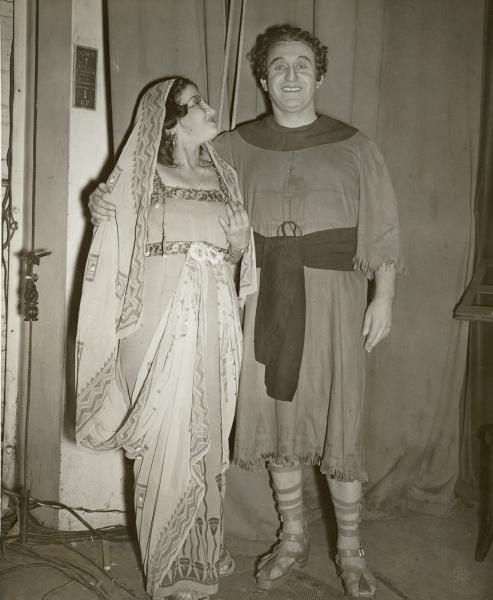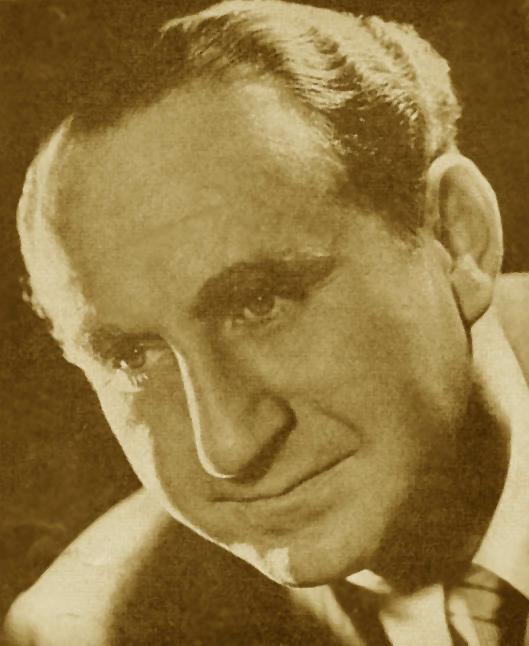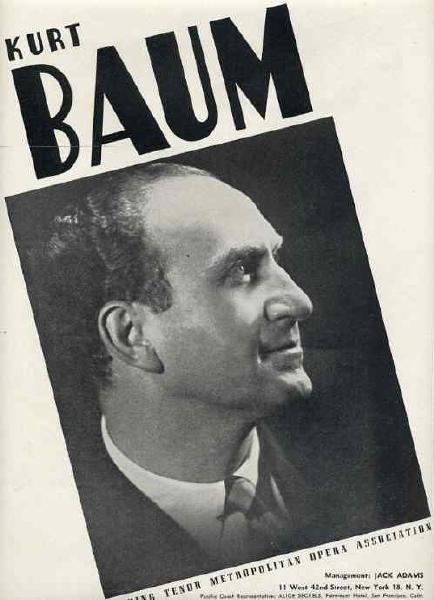Kurt Baum
15 March 1900 Prague – 27 December 1989 New York City
Kurt Baum, backstage in Aida
In RA format
In RA format
| Kurt Baum sings Il trovatore: | Mal reggendo, with Margaret Harshaw
|
In RA format
In RA format
In RA format
In RA format
In RA format
In RA format
He studied medicine in Prague, was an avid amateur boxer, and only in 1930 began to study voice in Berlin and
Vienna, and with Edoardo
Garbin in Milano. In 1933, he made his debut in Zürich in Zemlinsky's
Kreidekreis. 1935–39 at the Deutsches Theater in Prague, where he participated in the world premiere of Ernst Krenek's
Karl V.. 1939–41 in Chicago, where he made his debut as Radamès; 1941–66 at the Met (debut: Italian Singer),
where he sang Manrico, José Cavaradossi, Enzo, Alvaro, Radamès, Canio, Samson, Puccini's des Grieux, Pollione, Chénier,
Grigorij, but also Tambourmajor and (rarely) Lohengrin and Stolzing – a total of 360 performances, but to say that he was a
favorite with the New York audience would be definitely misleading.
He was famous for being incredibly conceited, thinking of himself as the greatest tenor of all times; for his terrible pronunciation
of every other language than German; for his limited intelligence; for his laughable acting on stage; and for his secure high C.
However, his C was also an obsession; one of the countless Baum anecdotes has him rushing to every piano he saw, striking the high
C, and yelling one so as to check whether he still had it... His sound is just plain ugly, and as always, that's not just a matter
of natural timbre, but even more so of voice production; his musical interpretations are close to inexistent.
I would like to thank Thomas Silverbörg for the recordings (Di quella pira 1, Mal reggendo, Andrea Chénier, Guillaume Tell, Cavalleria), poster and picture (private).
|


